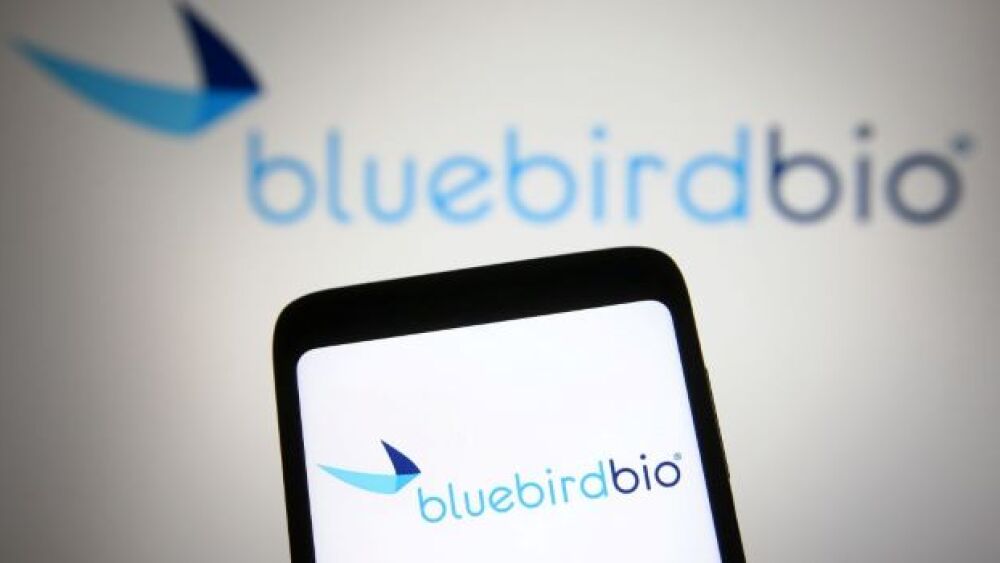Bluebird bio faces a two-day crucible as the U.S. Food and Drug Administration’s Cell, Tissue and Gene Therapies Advisory Committee will give two lentiviral vector gene therapies a thumbs up or down.
Courtesy of Pavlo Gonchar/SOPA Images/LightRocket via Getty Images
It’s game day for bluebird bio.
The company, battered by layoffs and cash concerns, faces a two-day crucible as the U.S. Food and Drug Administration’s Cell, Tissue and Gene Therapies Advisory Committee will give two lentiviral vector gene therapies a thumbs up or down.
On Thursday and Friday, the advisory committee will discuss the benefits of two gene therapies: bet-cel, a treatment for the blood disorder beta-thalassemia, and eli-cel, a one-time therapy for the treatment of early active cerebral adrenoleukodystrophy (CALD) in pediatric patients who are not eligible for stem cell transplant from a matching donor.
These are the first lentiviral vectors to be assessed by the advisory committee, which means that the gene therapy world sphere will be paying close attention. During the meeting, bluebird will make its case for each of the gene therapies, highlighting efficacy data. The company will likely share testimonies from patients whose lives have been transformed by the therapies.
Ahead of the advisory committee meeting Thursday, the Nasdaq halted trading of bluebird bio’s common stock. Shares closed at $3.73 on Wednesday, up more than 3%. Investors are hoping for a positive review of the two gene therapies, in hopes of reversing the steady decline of the company stock. Since the start of 2022, shares of bluebird have fallen from $10.60 on Jan. 3, a 64% decline. If the decisions are not favorable, investors are likely to dump their shares, and bluebird’s stock prices will continue the downward spiral.
While both beti-cel and eli-cel are lentiviral vectors, the two have a different clinical history. Eli-cel, also known as elivaldogene autotemcel, will be the first discussed by the committee. As BioSpace previously reported, eli-cel has already been approved in Europe for CALD. It is marketed under the brand name Skysona.
CALD is a serious neurological disorder caused by mutations in the ABCD1 gene. The rare, progressive, x-linked disorder is ultimately fatal, but not before sending the patient into a vegetative state. There are no FDA-approved therapies for CALD. The committee will have to weigh whether or not the efficacy of eli-cel outweighs the risks for these juvenile patients.
According to bluebird data, eli-cel uses ex vivo transduction with the Lenti-D lentiviral vector (LVV) to add functional copies of the ABCD1 gene into a patient’s own hematopoietic stem cells (hsc). The functional ABCD1 gene allows patients to produce the ALD protein, which is thought to facilitate the breakdown of very long-chain fatty acids. That, in turn, breaks down myelin, the protective sheath around nerve cells in the brain.
Over the course of its clinical development, eli-cel has boasted positive efficacy. However, there have been some safety concerns, which the committee members will be sure to discuss in detail. Eli-cel was hit with a clinical hold last year over safety concerns after a patient treated with the gene therapy developed a rare form of cancer, myelodysplastic syndrome. The committee members will likely discuss whether or not effectively treating CALD and running the risk of cancer is an acceptable option for patients who have no other medical recourse.
Unlike eli-cel, beti-cel has not had the same kinds of clinical safety concerns. Beti-cel, also known as betibeglogene autotemcel, is a one-time gene therapy to treat beta-thalassemia in patients who need regular transfusions of red blood cells.
Like eli-cel, beti-cel has been approved in Europe and is marketed as Zynteglo. Late-stage clinical data showed that 89% of patients who could be evaluated achieved transfusion independence following treatment with beti-cel.
The committee meetings will begin later this morning. They can be watched online via YouTube.





